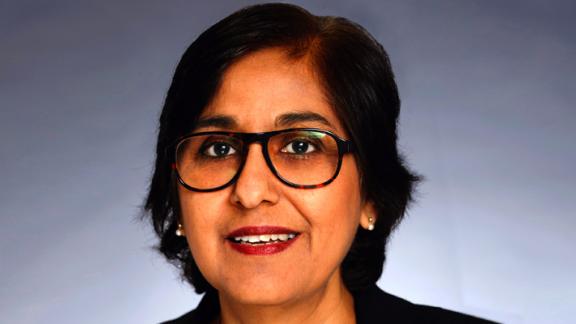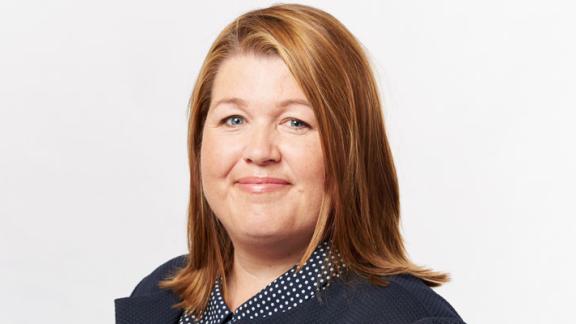A network of our own

NHS England and NHS Improvement's Sabina Hafesji and Sajidah Ahmad talk about how 'increasingly feeling [the] weight of our religious burden' made the time right to set up a network for Muslim women in the NHS, to support them from, not only gender and racial discrimination, but also Islamophobia.
Back in early 2020, when we first met to discuss the idea of a Muslim Women’s Network, we both agreed that we, and many other Muslims we knew, had for some time been increasingly feeling the weight of our religious identity. Growing up as Muslims of Asian descent, we were, along with the children of other migrants of the 50s and 60s to the UK regarded as ‘Black.’ Later we became Asian, and after 9/11, many of us felt labelled more and more as Muslims, with our religious identity, front and centre, and increasingly a topic of discussion in the media and society at large.
This led to us wondering about the impact that 20 years of increasing Islamophobia, alongside the other barriers Muslim women sometimes face, had had on our own experiences as well as those of other women. Often, Muslim women are at the receiving end of several different types of discrimination. As women, they are subject to the gender discrimination and pay disparities that mean women still earn less than their male counterparts. As most Muslims are from an ethnic minority background, they are exposed to the structural racism and income gaps experienced by other black and minority ethnic (BME) colleagues. As Muslim women specifically, and even more so in the case of hijab or niqab-wearing women, we bear the brunt of Islamophobia, ranging from commonplace and cutting microaggressions to overt racism.
For these reasons and following conversations with other Muslim women, we decided the time was right for a network of our own, and since March, the group has been communicating regularly, holding our first virtual meeting in August. The increasing diversity of Muslims in the UK is well represented in the group, which includes women of Asian, African, and European heritage. Many of the women have found it to be a beneficial, safe space to talk about their shared experiences, gain support and expand their network. Where the group goes from here will be down to the members themselves, but we have already started to make an impact and ensure our voices are heard.
Impact
During COVID-19, we heard from network members about not having the option to work from home or feeling anxious about working on the frontline. Some women reported not feeling confident enough to express their concerns to managers and anxiety about how speaking up may impact their jobs and future careers. This is consistent with findings from previous NHS Staff Surveys and workforce race equality standard (WRES) reports which consistently evidenced BME staff reporting discrimination, harassment and victimisation as a result of speaking out. Stories of being overlooked for stretch opportunities and a lack of support in career development are common amongst the group. We also learned about specific issues around working during Ramadan and wearing PPE with hijab.
We were able to feed this grassroots level feedback into NHS Confederation’s COVID-19 work and the EDI workstream in particular. We were also able to include some of the insights in a briefing which outlined the impact of COVID-19 on BME communities and health and care staff. Members of the group have been instrumental in helping with the NHS Reset campaign and its health inequalities strand.
The key lesson we have taken from the network is that there is a diverse range of Muslim women working in health and social care, covering a whole range of roles from consultants and commissioners to paramedics and policymakers. We are contributing a huge amount to our NHS and other organisations, despite pressures both inside and outside of work. Because of this, it’s vital that organisations engage with Muslim women deeply, to understand the detail of how best to support us, and broadly to ensure all voices from this diverse group are considered.
How can you support the Muslim women in your organisation and beyond?
- Be intersectional in your approach. Supporting Muslim women in your organisations and communities may require a specific approach or approaches, given the diverse make-up of this group. Speak to as many of them as possible.
- Develop bespoke mentoring to support women, with mentors having an understanding of the key issues faced by Muslim women. A well-designed programme of reciprocal mentoring may also help increase understanding.
- Host careers events and outreach into Muslim communities and female Muslim spaces to highlight the diverse range of careers available to women - a win/win for communities and the NHS and social care organisations.
- Think about flexible working options that might support Muslim women, who may do more unpaid caring work than their male or white/non-Muslim female counterparts.
If you work for an NHS or social care organisations and would like to join the network or want to find out more, contact Sabina directly via email at muslim.women@nhs.net
Sabina Hafesji is strategy and policy senior manager at NHS England. Follow her and the network via LinkedIn, Bluesky, or X/Twitter @NHSMuslimWomen
Further reading
- The Guardian: We’ve got the degrees, so why do Muslim women struggle to get jobs?
- BBC: Muslim women at disadvantage in the workplace
- The Guardian: What I'm really thinking: the Muslim office worker.
- Bi, S. (2020). Empowered Employment: Unlocking the Workplace for Muslim Women. Muslim Women Connect.
- House of Commons Women's and Equality Committee (2016). Employment Opportunities for Muslims in the UK



